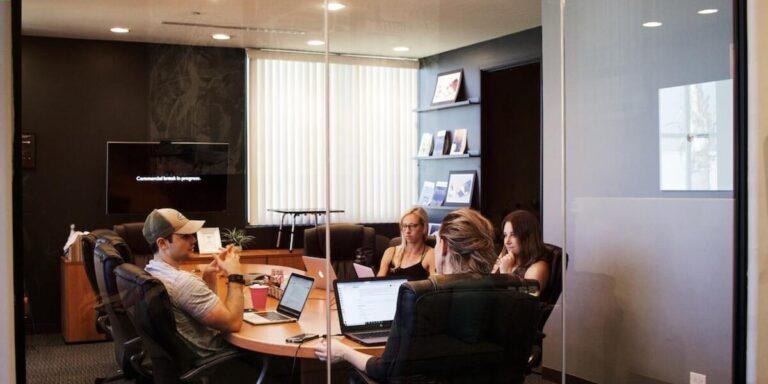Transferring Family Cabin To Children
Are you a proud owner of a family cabin that holds countless memories and has become an important part of your legacy? As time goes on, you may start to think about how to ensure that this cherished retreat can be passed down to your children seamlessly. Transferring the family cabin to your children can be a complex process, involving legal considerations and potential tax implications. In this article, we will explore the various options and strategies available to help you navigate this important decision. With the guidance of a skilled business lawyer, you can protect your family’s legacy and ensure that the cabin remains a treasured haven for future generations. So, let’s delve into the details and find the best approach for transferring your family cabin to your children.

Overview
Transferring the family cabin to your children is a significant decision that requires careful consideration. It involves various legal and financial considerations, and it’s essential to understand the methods of transfer and the tax implications involved. Additionally, estate planning and family dynamics should be taken into account to ensure a smooth and fair transfer process. In this comprehensive article, we will delve into the legal aspects, tax implications, and family considerations related to transferring a family cabin.
Why Transfer the Family Cabin?
Before delving into the methods and considerations, it’s important to understand the motivations behind transferring the family cabin to your children. There could be various reasons for such a transfer, including passing on a cherished family asset, ensuring its preservation, or providing a getaway for future generations. Transferring the cabin can also have various practical benefits such as tax advantages or simplifying your estate planning. Whatever your reasons, it’s crucial to understand the legal considerations involved in the transfer process.
Legal Considerations
When transferring a family cabin, several legal considerations should be taken into account to ensure a smooth and legal transfer. First, it’s important to review the ownership documentation for the cabin and determine how it is currently titled. Understanding the current ownership structure will help determine the appropriate method of transfer.
Another crucial legal consideration is determining if there are any restrictions or covenants associated with the cabin. For example, the cabin may be subject to a homeowners association’s rules, or there may be specific zoning regulations that need to be considered. Consulting with a lawyer can help you navigate through these legal considerations and ensure compliance with all necessary regulations.
Methods of Transfer
When transferring a family cabin, there are several methods to choose from, each with its own advantages and considerations. The three most common methods of transfer are through gift, sale, or by establishing a trust.
Gift
Transferring the family cabin as a gift involves signing over ownership rights to your children without receiving any consideration in return. This method allows for a straightforward transfer of ownership, but it’s important to understand the requirements and potential gift tax implications.
Sale
Another option is to sell the family cabin to your children. This method involves negotiating a fair purchase price and drafting the necessary legal documentation for the sale. Selling the cabin provides an opportunity to realize financial value for the property, but it’s crucial to consider the tax implications and properly navigate the sale process.
Trust
Establishing a trust is another commonly used method for transferring a family cabin. By creating a trust, you can retain control over the cabin during your lifetime while designating your children as beneficiaries. This method provides flexibility, allows for specific conditions to be set, and can help avoid probate. Understanding the requirements for establishing a trust and the different types available is crucial in successfully transferring the cabin to your children.
Gift
Transferring the family cabin as a gift allows for a straightforward transfer of ownership. However, there are certain requirements that need to be met, and potential gift tax considerations to keep in mind.
Requirements for Gift
To transfer the family cabin as a gift, you need to ensure that you have full ownership rights and that there are no conflicting ownership claims. It’s also important to consider any restrictions or covenants associated with the cabin, such as zoning regulations or homeowners association rules.
Gift Tax Considerations
When transferring the family cabin as a gift, it’s important to be aware of potential gift tax implications. The IRS imposes a gift tax on transfers of property worth more than a certain amount. However, there are exclusions and allowances that may apply, such as the Annual Gift Tax Exclusion. Consulting with a tax professional can help you understand the potential tax consequences and make informed decisions regarding the transfer.
Sale
Selling the family cabin to your children provides an opportunity to realize financial value for the property. However, it’s important to negotiate a fair sale price and draft the necessary legal documentation to ensure a legal transfer.
Negotiating the Sale
When selling the family cabin, it’s important to negotiate a fair purchase price that reflects the market value of the property. Consult with a real estate professional to obtain an accurate appraisal and ensure that both parties are satisfied with the agreed-upon price. Consideration should also be given to whether the sale will be conducted all at once or through installment payments.
Legal Documentation
To ensure a legal transfer, it’s crucial to draft the necessary legal documentation for the sale. This typically includes a purchase agreement, which outlines the terms and conditions of the sale, as well as any warranties or guarantees. Consulting with a lawyer who specializes in real estate transactions can help ensure that all legal requirements are met and the transfer is conducted properly.

Trust
Establishing a trust can provide flexibility and control over the family cabin while designating your children as beneficiaries. Understanding the process of creating a trust and the different types available can help ensure a successful transfer.
Creating a Trust
To transfer the family cabin through a trust, you’ll need to establish a legal document that outlines how the property will be managed and distributed. The trust document should clearly define the roles and responsibilities of the trustees and beneficiaries, as well as any conditions or restrictions associated with the cabin.
Types of Trusts
There are various types of trusts that can be used to transfer a family cabin, each with its own advantages and considerations. Some common types of trusts include revocable living trusts, irrevocable trusts, and family limited partnerships. Consulting with a lawyer experienced in estate planning can help determine the most suitable type of trust for your unique circumstances.
Tax Implications
Transferring a family cabin can have tax implications that need to be considered. Two significant tax considerations are capital gains tax and property tax.
Capital Gains Tax
When transferring the family cabin, capital gains tax may apply if the property has appreciated in value since its acquisition. It’s important to understand the capital gains tax rate and any exclusions or deductions that may apply. Consulting with a tax professional can help you navigate through the complex tax laws and plan accordingly.
Property Tax
Transferring the family cabin may also have implications on property tax. It’s important to consult with your local tax assessor’s office to understand any potential changes in property tax assessment or exemptions. Familiarizing yourself with the applicable property tax laws will help you plan for any tax liabilities associated with the transfer.

Estate Planning
Transferring a family cabin to your children provides an opportunity to incorporate your estate planning goals. By considering wills and trusts, you can ensure a smooth transfer process while avoiding probate.
Wills and Trusts
Incorporating a family cabin into your estate planning involves considering wills and trusts. A will allows you to designate how your assets, including the cabin, will be distributed after your passing. Additionally, establishing a trust can provide additional control and flexibility over the transfer process, as discussed earlier.
Avoiding Probate
Transferring the family cabin through a trust can help avoid the probate process. Probate is a legal process that verifies the authenticity of a will and oversees the distribution of assets. By using a trust, you can ensure a smoother transfer process, maintain privacy, and potentially reduce costs associated with probate.
Family Considerations
Transferring a family cabin can have implications on family dynamics and fairness. It’s important to consider these family factors to ensure a smooth transition and minimize potential conflicts.
Ensuring Fairness
When transferring the family cabin, it’s important to consider fairness among your children and other family members. This can involve open and transparent communication to explain your decision-making process and address any concerns or disputes. Consulting with a lawyer who specializes in family law can provide guidance on how to ensure fairness throughout the transfer process.
Sibling Disputes
Sibling disputes can arise when transferring a family cabin, especially when emotional attachments and financial considerations are involved. Consideration should be given to potential conflicts and how to mitigate them. Consulting with a lawyer who has experience in resolving family disputes can help you navigate through any difficulties and ensure a harmonious transfer.
Legal Assistance
Transferring a family cabin involves complex legal and financial considerations, making it beneficial to seek legal assistance. Hiring a lawyer who specializes in real estate or estate planning can provide invaluable guidance throughout the transfer process.
Benefits of Hiring a Lawyer
A lawyer experienced in real estate or estate planning can provide several benefits when transferring a family cabin. They have a deep understanding of the legal requirements, can draft the necessary documentation, and ensure compliance with all regulations. Additionally, a lawyer can provide guidance on tax implications, minimize potential risks, and help address any family dynamics associated with the transfer.
Choosing the Right Attorney
Choosing the right attorney is crucial when transfer a family cabin. Look for an attorney who specializes in real estate or estate planning and has a proven track record in successfully assisting clients with similar transfers. It’s also important to find a lawyer who understands your specific needs and can navigate through any unique circumstances you may have.
FAQs
What documents are needed for transferring a family cabin?
The exact documents needed for transferring a family cabin can vary depending on the chosen method of transfer. However, common documents may include ownership documentation, purchase agreements, trust documents, and any necessary tax forms. Consulting with a lawyer can help determine the specific documents required for your situation.
Can I transfer the cabin while still living?
Yes, it is possible to transfer the family cabin while still living through various methods such as gifting, selling, or establishing a trust. Each method has its own legal and financial implications. Consulting with a lawyer can help you determine the most suitable method for your circumstances.
What happens if one of my children wants to sell their share?
If one of your children wants to sell their share of the family cabin, it can complicate the transfer process. It’s important to establish clear provisions and guidelines in the ownership documentation or trust to address such situations. Consulting with a lawyer who specializes in real estate or estate planning can help you navigate through this potential scenario.
Are there any tax benefits to transferring the cabin?
Transferring the family cabin can have potential tax benefits, such as avoiding capital gains tax or utilizing gift tax exclusions. However, tax benefits vary depending on individual circumstances and the chosen method of transfer. Consulting with a tax professional can help assess your situation and determine the tax benefits available.
What if I don’t have any children?
If you don’t have any children, transferring a family cabin becomes more complex as there is no clear line of inheritance. In such cases, it’s crucial to carefully consider your estate planning options and consult with a lawyer who can provide guidance on the best course of action.



